As we turn the page on a new year, there's no better time to refresh your financial mindset and set goals for lasting success. A fresh start in 2025 brings an opportunity to build on the lessons of the past while implementing new strategies that keep you moving toward financial freedom. Whether you're looking to get out of debt, grow your savings, or invest for your future, here’s your ultimate checklist to kickstart your financial success for the year ahead.
1. Reflect on the Past Year
Start by reviewing your financial wins and challenges in 2024. Were there goals you didn’t quite hit, or expenses that crept up unexpectedly?
Take note of areas you want to improve and celebrate any progress you made, no matter how small. This reflection will give you clarity as you set intentions for 2025.
2. Set SMART Financial Goals
Make sure each goal you set is Specific, Measurable, Achievable, Relevant, and Time-bound (SMART). Instead of a vague “save more,” try “save $5,000 by year-end for emergencies.”
Include short-term, and long-term goals that balance immediate needs with future aspirations.
3. Create a 2025 Budget that Aligns with Your Goals
Draft a monthly budget that reflects your income, essential expenses, and savings targets. Budgeting doesn’t have to be restrictive—it’s about empowering yourself to make informed choices.
Don’t forget to account for annual expenses like holiday gifts, insurance premiums, or upcoming vacations so that they don’t catch you off guard.
4. Build Your Emergency Fund
An emergency fund is a non-negotiable pillar of financial security. Saving one month of expenses allows you to manage your finances with a monthly budget.
If you already have an emergency fund, consider increasing it to cover rising living costs or any potential new expenses.
5. Attack Your Debt with a Purpose
Outline a strategy for tackling debt, whether it’s credit card balances, student loans, or car payments.
Consider using tools like balance transfer offers or negotiating interest rates to speed up the process, but stay disciplined and stick to your payment plan.
6. Boost Your Savings with Automated Transfers
Make saving easy by setting up automatic transfers to your savings and investment accounts. This helps make saving a habit and ensures you stay on track.
If you’re not sure how much to set aside, start small and increase your savings rate over time.
7. Evaluate and Adjust Your Insurance Needs
Review your current insurance coverage to ensure it aligns with your needs. Health, auto, home, life, and disability insurance are essential tools for protecting what you’ve worked hard for.
Look for any gaps in coverage and consider if changes are needed due to life events, such as marriage, having children, or buying a home.
8. Invest with Confidence
If you haven’t started investing, now is a great time to learn the basics and explore your options. Whether it’s a retirement account, stocks, or mutual funds, investing is key to growing your wealth.
Don’t just dive in; take the time to understand your risk tolerance and long-term goals. Consulting with a financial advisor may help you design a portfolio that suits your needs.
9. Track and Adjust Monthly
Financial success requires consistency and attention. Check in with your budget and goals each month to make sure you’re on track.
Celebrate your progress, no matter how small, and adjust as needed to accommodate unexpected expenses or shifts in priorities.
10. Stay Educated and Engaged
Make 2025 the year you commit to financial literacy. Books, podcasts, and online resources (like “I Was Broke. Now I’m Not.”) can keep you informed, inspired, and motivated.
Join a community of like-minded people who can encourage you on your journey. Financial success is about building wealth and enjoying life, so seek out resources and communities that align with your values.
Starting 2025 with Confidence: Your Fully Funded Life Awaits
As you step into 2025, remember that financial success is a journey—and with the Fully Funded Life Membership, you don’t have to travel it alone. Setbacks may arise, but with a clear plan, expert guidance, and a supportive community, you’ll be equipped to navigate every twist and turn.
This is your year to make empowered, intentional financial choices that lead to freedom, security, and a life of abundance. With Fully Funded Life by your side, you’ll have the tools and confidence to turn 2025 into a year of transformation and success.
Start your Fully Funded Life today and make 2025 your best financial year yet!
